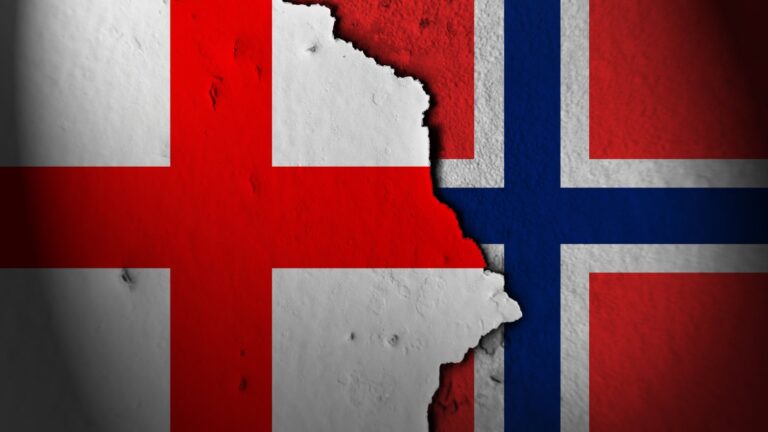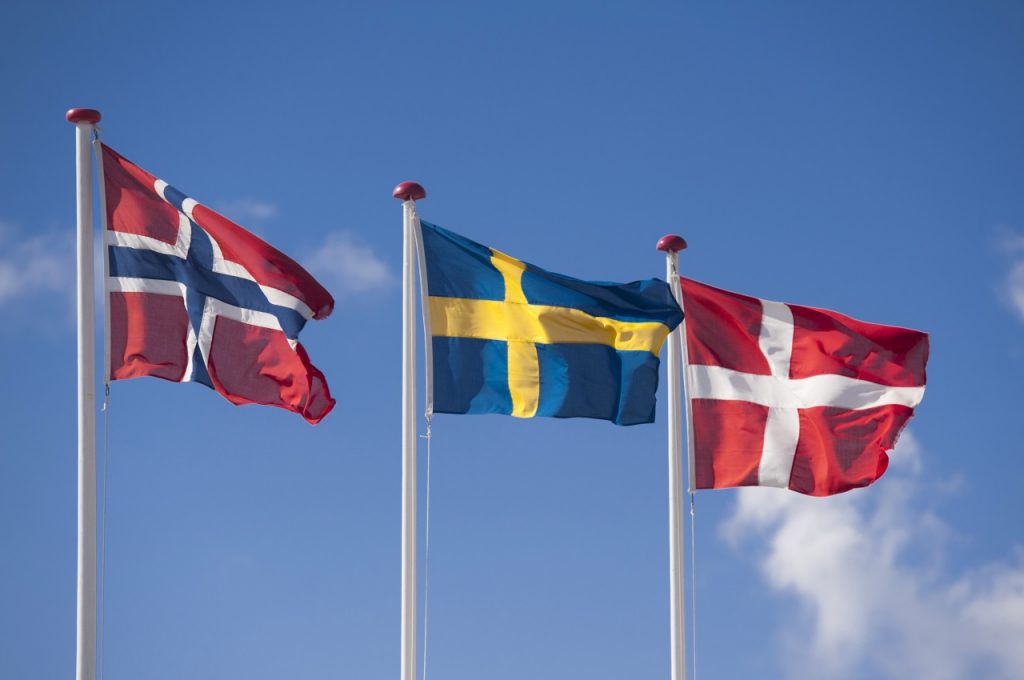If you've ever visited Scandinavia, it's hard not to miss the popularity of the English language. We take a look at the role of the English language in Norway and Scandinavia today.
Along with the Dutch, Scandinavians have the best non-native English skills in the world. That's according to the ninth edition of the EF English Proficiency Index.

If you’ve ever travelled through Scandinavia, one thing quickly becomes apparent: just how widespread the use of English really is.
Whether you're ordering coffee in Oslo, browsing a boutique in Copenhagen or chatting to a fellow passenger on a train in Stockholm, chances are you’ll be met with fluent, confident English spoken by people of all ages.
This near-universal command of English often comes as a pleasant surprise to visitors. It makes travelling through the region remarkably easy, especially for those who may have been daunted by the idea of learning Norwegian, Danish or Swedish.
But beyond making life easier for tourists, the role of English in Scandinavia runs much deeper. In this article, we explore how English came to hold such a prominent position across the region, and why it continues to thrive today.
World-Leading English Skills
Scandinavians are widely recognised as some of the most proficient non-native English speakers in the world.
According to the 2024 edition of the EF English Proficiency Index—a global ranking based on test data from over two million adult learners—Norway claimed second place overall, followed closely by Sweden in fourth and Denmark in seventh. Finland, while slightly further down the list, still performed strongly in fourteenth place.
All four Nordic nations earned a place in the “very high proficiency” category, meaning English is used with confidence in both personal and professional settings.

Although the 2024 results showed a slight overall decline in English proficiency across Europe, the Scandinavian countries remain among the most fluent globally. Their strong performance is a reflection not only of education policy but of cultural attitudes that embrace internationalism and multilingualism.
A Family of Related Languages
Norwegian, Swedish and Danish all share a common ancestor in Old Norse. This shared history gives the languages enough similarities for mutual understanding, at least to a certain degree. But what’s more impressive is that most Scandinavians are also fluent in English.
English and the Scandinavian languages belong to the same branch of the Indo-European language family: the Germanic branch. While they may look quite different at first glance, they share many underlying features.
For instance, the way verbs are conjugated in English is surprisingly similar to how it works in Norwegian, Swedish and Danish.
This makes English far more accessible to Scandinavian learners than languages in the Romance family, such as Spanish or Italian, which follow more complex grammatical structures.
A Two-Way Street of Vocabulary
Language borrowing goes both ways. English has absorbed many words from Old Norse thanks to Viking influence, including “knife,” “cake,” “sky,” and “berserk.”
Meanwhile, modern Scandinavian languages borrow freely from English, especially in areas where a native word doesn’t quite do the job.

Scandinavian advertising often features English taglines, and it's increasingly common to hear English idioms used in everyday speech. With an estimated 750,000 words, English has one of the largest vocabularies of any language, making it a convenient source of inspiration for other tongues.
Starting Young
One of the biggest reasons for Scandinavians’ strong English skills is the early introduction of the language in schools. As soon as children have a solid grasp of their native reading and writing, English is added to the curriculum.
Although the exact starting age varies by country and region, most children have already received a year or more of formal English education by the time they turn ten.
Surrounded by English Media
Formal lessons are only one part of the story. From a young age, Scandinavian children are immersed in English-language content.
YouTube, TikTok, streaming platforms like Netflix, and international video games mean that kids are exposed to English daily, often without realising they’re learning.
This immersion is reinforced by a national habit: Scandinavians almost never dub foreign shows. On Norwegian TV, English-language programmes are subtitled rather than dubbed, preserving the original dialogue and exposing viewers to authentic spoken English.
Whether someone develops a British or American accent often depends more on their favourite TV shows or social media stars than their classroom lessons.
English slang—even the more colourful variety—is widely understood among young people, and it's not uncommon for teenagers to switch between English and their native tongue mid-sentence.
A Region of Travellers
Scandinavians are known for their love of travel. High salaries, generous holiday allowances and affordable flights mean many take several international trips a year.
Budget airlines such as Norwegian Air and Wizz Air have made weekend getaways more accessible than ever before.
Trips to London or other English-speaking destinations give people the chance to practise their skills, reinforcing what they’ve learned and increasing their confidence in using English in real-world situations.
A Valuable Career Asset
Proficiency in English is also seen as an essential skill for international business. Many Scandinavian students pursue degrees abroad, often in English-speaking countries or in international programmes where English is the medium of instruction. This academic exposure further strengthens their grasp of the language.

The Scandinavian business community has long embraced English as a working language, particularly in global industries such as technology and finance.
Entrepreneurs are encouraged to think globally from the outset, and many do. The founder of the global education company EF Education First, for instance, is not British or American, but Swedish.
Bertil Hult launched EF by sending Swedish students to Brighton in 1965. Today, EF operates in more than 100 countries, helping students and professionals around the world immerse themselves in English.
Is English a Threat to Local Languages?
The increasing use of English in Scandinavian society has led to some concerns. As English becomes the working language in more businesses and academic environments, critics have asked whether the native languages of the region are at risk.
In Sweden, the national language council (Institutet för språk och folkminnen) has addressed these concerns, concluding that the overall structure of Swedish remains highly stable.
According to Olle Josephson, Professor Emeritus in Scandinavian Languages and former head of Språkrådet, the influence of English should not be overstated.
In an interview with The Local, he said: “Compared to the influence of Low German around the 14th and 15th centuries, English influence is fairly weak. That German influence really transformed the way Swedish worked. There is no threat to the Swedish language in that it could be successively consumed by English, word for word.”
Some people point to immigration as a reason for the increased visibility of English.
While English may be a common bridge language between different groups, proficiency in the local language is still required for permanent residency or citizenship in Norway, Sweden and Denmark. This policy helps ensure that local languages retain their central role in society.


Love your writings, David Nikel. Really lærerikt even for a 100 % Norwegian (who is old enough not to be that fluent in English as the younger generations).